The East-West Center in Washington recently celebrated its 500th publication in the Asia Pacific Bulletin (APB) series. The COVID-19 pandemic has emerged as a primary issue confronting policy makers across the Indo-Pacific region as well as in the United States for several months now. We tapped into the wealth of expertise of APB authors to get a sense of what thought-leaders on China, Southeast Asia, and American policy toward the Indo-Pacific have to say about where we are headed during these uncertain times.
We asked APB authors with either personal experience or expertise in Southeast Asia a series of questions relating to the pandemic. Respondents came from all across the region:
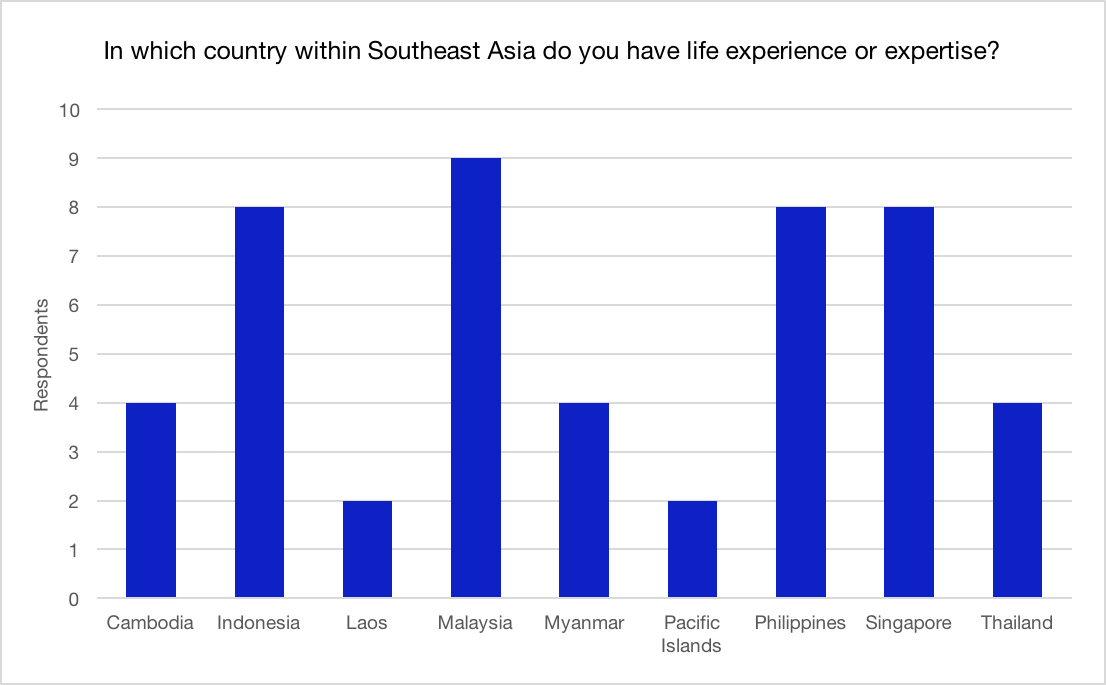
Opinions were fairly divided as to who has had the most effective response, but the two most common answers were South Korea and Taiwan:
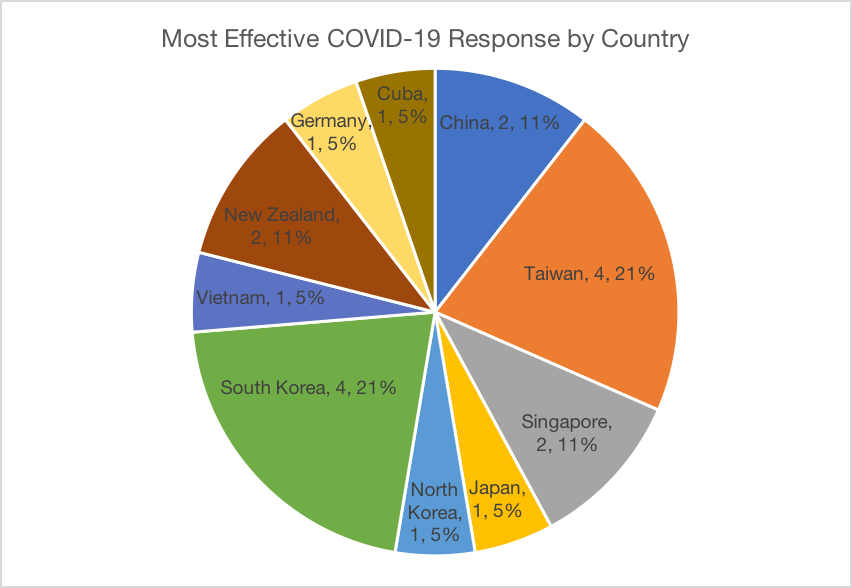
When it came to the questions of how the crisis would impact the US standing in the region versus that of China, almost all of the answers were nuanced, and depended on the particular policy issues of each country. Among the responses were the following:
Indonesia:
"Should US pressure from Sino-American rivalry come to erode Indonesian autonomy, it is possible that the relationship would weaken."
"Indonesia historically has mixed feelings towards China and Chinese and will want to seek a balance to Chinese overreach."
Philippines:
"Philippines will not be actively engaged [with the US] given its own public health crisis, but will be reactive to any initiative for cooperation to mitigate the effects of the pandemic."
"[Philippines-China relations] will be about the same. While the current Duterte administration favors China in its foreign policy, Filipino civil society remains cautious and suspicious against China."
Malaysia:
"[Malaysia-US relations were] so-so for quite some time before the pandemic started. I think it will remain the same."
"China is making a well publicised effort to show that it is sending aid to Malaysia when we need it."
Singapore:
"Faith in US global leadership has been further eroded."
"Economic ties [with China] will take a long time to recover."
Asked whether the crisis would make relations within Asia more or less cooperative, results were mixed:
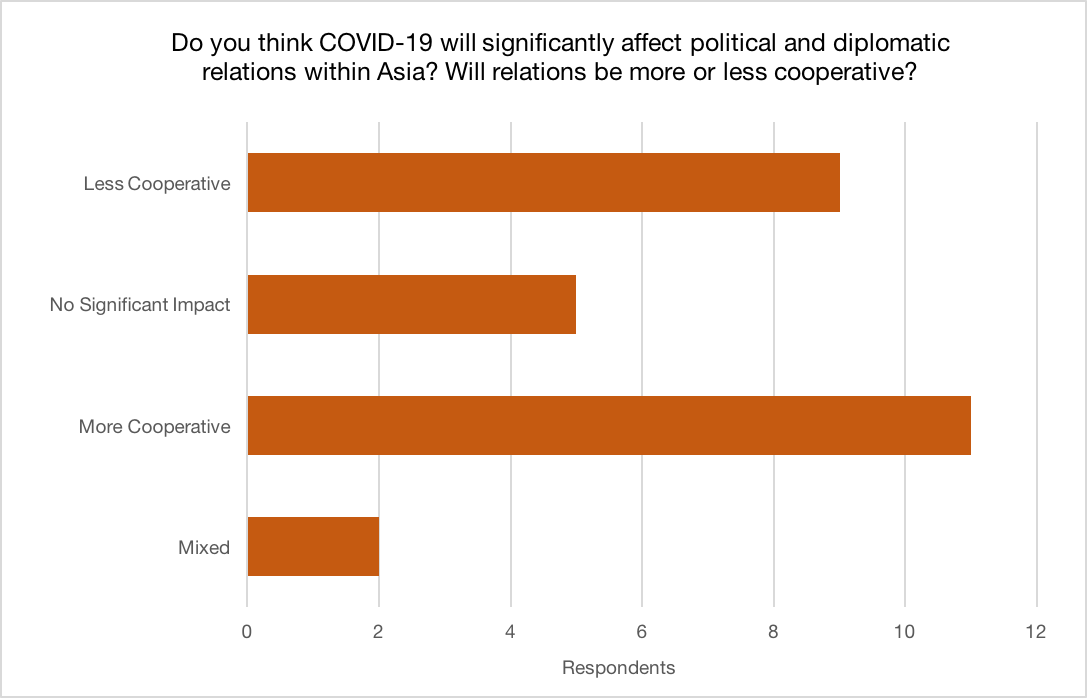
When asked about the impact on domestic politics, there was a widespread fear that the crisis could be used to consolidate power in the hands of increasingly authoritarian leaders:
Cambodia:
"It has fueled the trend toward increased authoritarianism."
Indonesia:
"What is likely to occur is the further deterioration of civil liberties, particularly over issues of data privacy in Indonesia."
Malaysia:
"Hopefully people will demand higher accountability from the government, less racialized politics, and higher awareness and focus to reduce societal inequality."
Philippines:
"While the people’s political and social levels of vigilance against the Duterte administration have increased, such momentum will not translate into political actions."
Singapore:
"[There is a] stronger expectation that government will exercise intrusive restrictions in an emergency, such as a future pandemic."
Finally, the survey ended with two questions that garnered near-consensus responses:
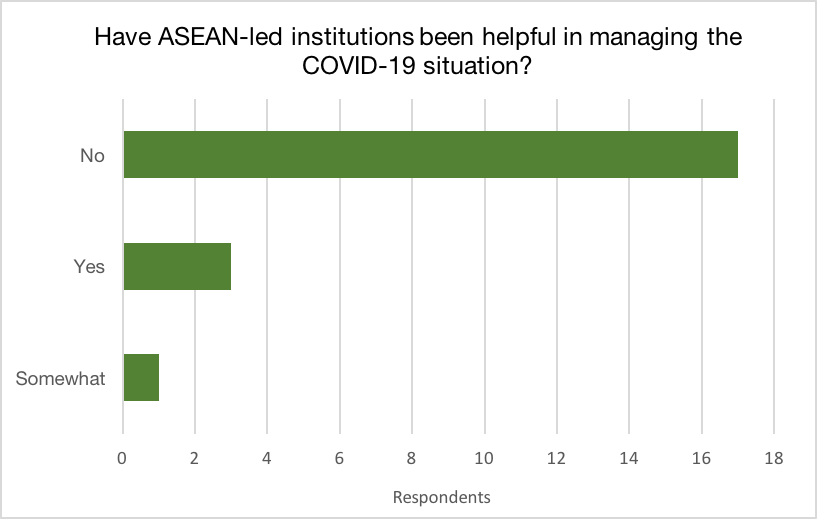
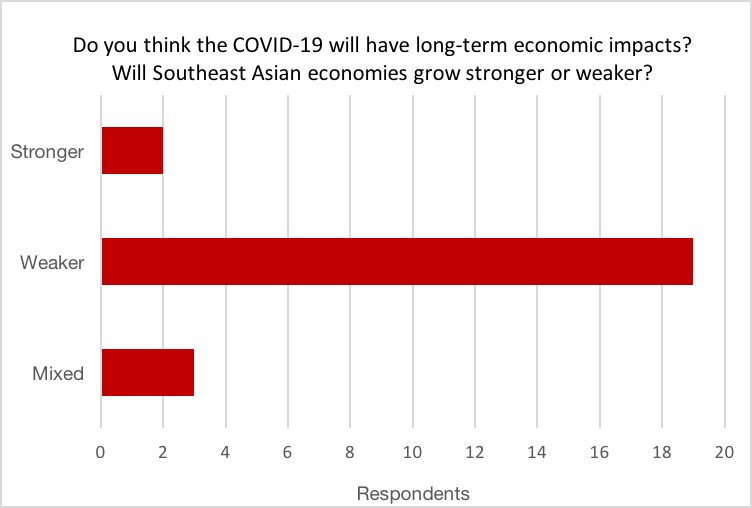
It is worth noting that the sample size is small, and much of the data presented here are simply anecdotal. That said, it looks like diplomats have their work cut out for them!
Peter Valente is a Programs Coordinator at the East-West Center in Washington. He coordinates the Asia Matters for America blog as well as the Asia Pacific Bulletin series.
Amanda Mei is a research intern in the Young Professionals Program at the East-West Center in Washington. She graduated from Yale University with a bachelor's degree in environmental studies in 2018.